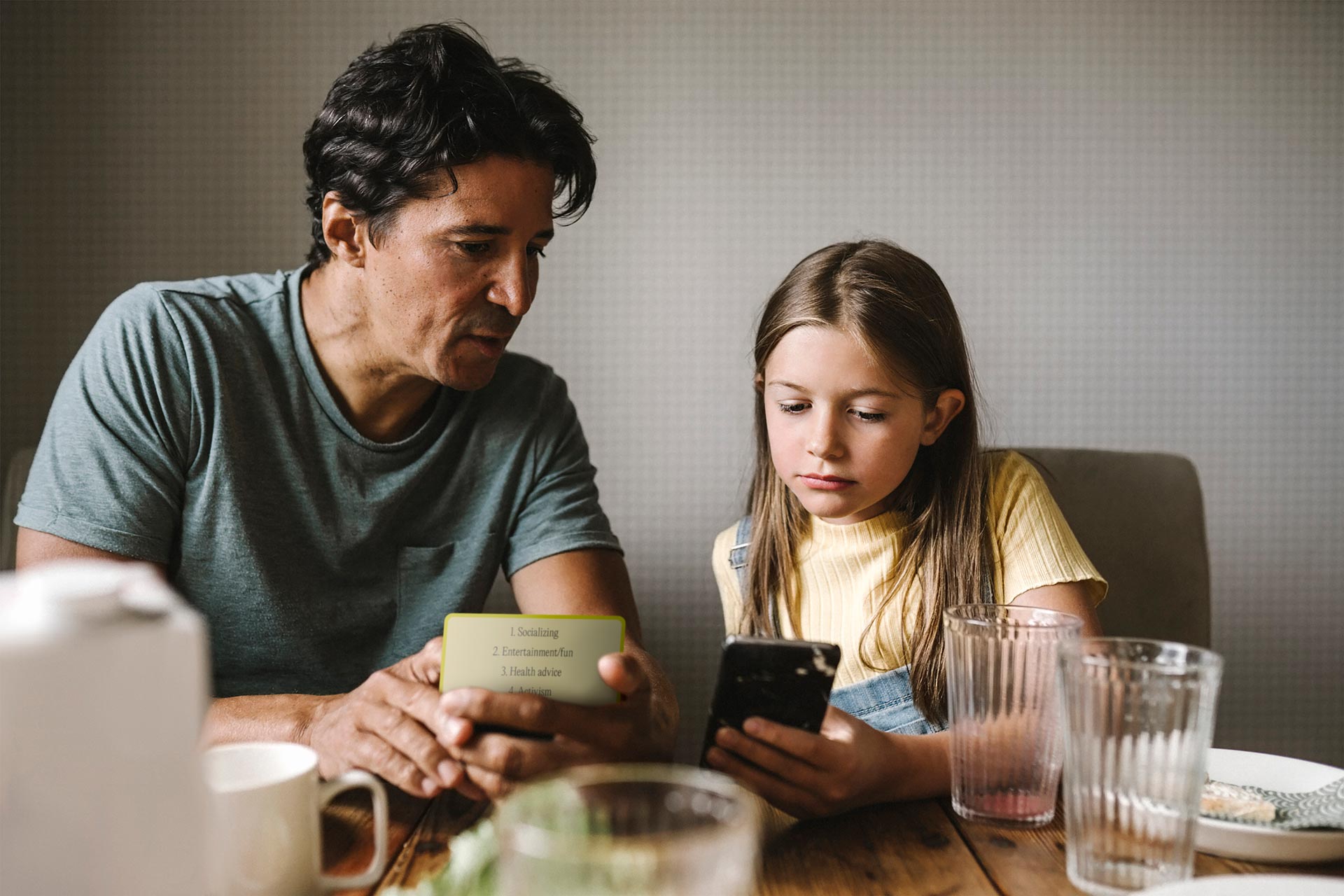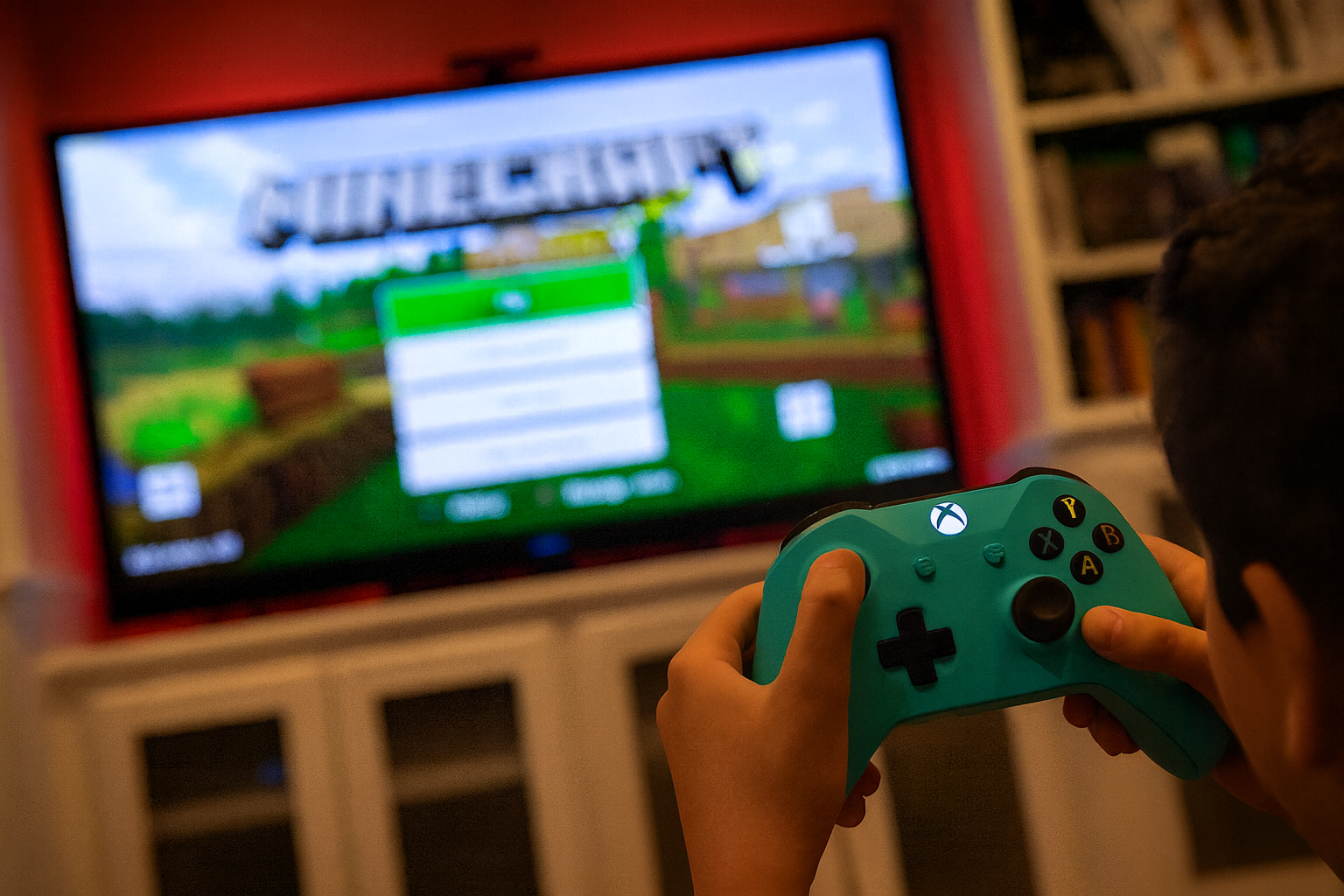Video games have become one of the most dynamic parts of children’s lives today. Far from being just entertainment, gaming now serves as a social and creative space where imagination, competition, and friendship naturally blend. For many kids, it’s how they connect, express ideas, and practice problem-solving in ways that traditional play once offered.
Understanding the different types of games to play for kids is now an important part of modern parenting. Games aren’t only about screens or scores; they’re environments that shape focus, communication, and emotional growth. Research shows that, with balance and guidance, thoughtful play can strengthen empathy, flexibility, and teamwork.
Still, the gaming world can feel complicated, filled with unfamiliar terms and trends. Knowing the differences between Battle Royale, Sandbox, and RPG games helps parents see what their children love and why. It also creates new opportunities for connection, turning gaming from a source of worry into a shared experience of curiosity and understanding.

Key takeaways:
- Battle Royale, Sandbox, and RPG games each shape kids’ creativity, teamwork, and emotional growth in distinct ways.
- Sandbox RPGs encourage open-ended exploration, storytelling, and collaboration that build patience and problem-solving skills.
- Role-playing and cooperative games strengthen empathy, communication, and values like respect and perseverance.
- Balanced parental involvement turns gaming into shared learning, emotional connection, and healthy digital play habits.
Why Game Types Matter for Kids
Understanding different kinds of play
Games are not a single experience; each genre brings unique learning opportunities.
- Sandbox games encourage open-ended exploration and creativity.
- RPGs (Role-Playing Games) invite storytelling and decision-making.
- Battle Royale games focus on quick thinking and teamwork under pressure.
When parents recognize these differences, they can better appreciate what attracts a child to a certain game. Instead of seeing gaming as “screen time,” it becomes an interactive form of play that can support confidence, persistence, and social learning.
Emotional and social development
Children often use digital play to test new ideas and express emotion. Cooperative adventures, creative building, and story-driven quests allow them to explore identity and empathy. Even competitive formats can help children manage frustration and practice self-control.
The key for parents is connection, understanding what emotional needs a game fulfills, rather than focusing only on time spent playing.
Battle Royale games: where competition meets cooperation

What ype of Game Is Battle Royale?
Battle Royale games place large groups of players in a shared arena where everyone competes to be the last one standing. Popular titles include Fortnite, Apex Legends, and PUBG. These games combine survival strategy with fast-paced decision-making.
Children enjoy them because each match feels new. They gather resources, form quick alliances, and celebrate small victories along the way. The strategic teamwork at the heart of Fortnite reflects the nature of competitive play that helps children build focus and adaptability.
Safety and emotional awareness
Parents often wonder, Is Battle Royale safe for kids? The answer depends on context and communication. These games can be exciting but also emotionally intense, so balanced guidance is key.
To support safe and healthy play:
- Limit voice chat to reduce exposure to strangers or negative interactions.
- Keep gaming visible by encouraging play in shared family spaces.
- Use parental controls to manage privacy, age ratings, and in-game spending.
- Check in emotionally, ask how your child feels after playing, and listen for signs of stress or excitement.
- Promote teamwork through duos or family play to teach cooperation and patience.
Gentle curiosity and open conversation go further than strict limits, helping children feel supported while developing self-awareness and balance.
Sandbox games: a digital playground for imagination
What is a Sandbox RPG game?
A Sandbox RPG (Role-Playing Game) gives kids the freedom to explore and create their own adventures instead of following a set storyline. In games like Minecraft, Roblox, or Terraria, children can build, imagine, and shape the world around them at their own pace.
These games stand out because they let children:
- Build freely using creativity and problem-solving.
- Collaborate with friends on shared goals or worlds.
- Create stories through characters and the choices they make.
This open-ended play nurtures imagination, patience, and teamwork. For parents, it’s a window into how digital spaces can inspire creativity and confidence, much like traditional play once did with bricks, blocks, and big ideas.
Educational and emotional benefits
Sandbox environments have strong educational benefits for children. They promote patience, spatial reasoning, and teamwork. When children build together, they negotiate roles and learn to respect others’ ideas.
For many families, these games become shared projects parents help plan, build, or simply watch their child’s creativity unfold. It’s a subtle but powerful way to encourage communication and confidence.
Role-playing games: stories that help kids grow
Understanding Role-Playing games
Role-Playing Games (RPGs) invite children into story-driven worlds where they take on the role of a character and guide them through challenges, choices, and adventures. These games, like Zelda, Pokémon, or Animal Crossing, mix exploration with emotional storytelling, helping kids learn through curiosity and empathy.
Unlike Sandbox games, which allow complete freedom to create and build, RPGs follow a guided story. Children progress through quests and make decisions that influence what happens next. Both forms of play offer valuable lessons:
- RPGs teach planning, patience, and problem-solving as players follow a story toward a goal.
- Sandbox games encourage creativity, independence, and open-ended exploration.
For parents, understanding these differences helps frame gaming not as a distraction but as storytelling in a digital age, one that helps children develop focus, empathy, and imagination.
Learning through storytelling
RPGs encourage empathy by letting children make moral choices and experience the outcomes of their decisions. They learn patience through long quests and gain purpose in helping virtual communities.
Key benefits of story-driven play include:
- Moral reflection: Children explore right and wrong through choices that shape each story’s outcome.
- Patience and focus: Long missions teach persistence and delayed gratification.
- Empathy and connection: Helping in-game characters nurtures compassion and responsibility.
- Literacy growth: Reading dialogue and following plots strengthen comprehension and memory.
- Values in action: Many adventure games for kids highlight that heroism often means kindness, perseverance, or teamwork.
When parents discuss these story choices, they open natural opportunities to talk about emotions, fairness, and values in everyday life.
Cooperative and family-friendly games

Games that bring families together
Cooperative games for families are designed for teamwork rather than rivalry. Titles like Overcooked, Mario Kart, or LEGO Star Wars ask players to solve problems together. The shared laughter that follows mistakes can be more memorable than the final score.
Playing alongside children teaches collaboration naturally. It turns the focus from “how long” they play to “how” they play with awareness, communication, and shared joy.
Encouraging connection through play
Parents can create simple traditions around gaming:
- Rotate turns during challenges.
- Celebrate progress together rather than focusing on outcomes.
- Use short sessions as family wind-down time.
When families nurture curiosity around gaming, understanding a child’sinterest in games helps bridge communication and build emotional connection.
Online and offline play-finding balance
How online and offline games differ
Both online and offline experiences have unique benefits. Online games connect children with friends, while offline modes promote focus and self-direction. Finding the right mix depends on each child’s temperament and family routine.
Comparison: Online vs Offline Games for Kids
|
Aspect |
Online Games |
Offline Games |
|
Social Skills |
Builds cooperation and digital communication |
Encourages self-reflection and concentration |
|
Learning Value |
Teaches adaptability and teamwork |
Strengthens critical thinking and imagination |
|
Risks |
Possible exposure to strangers or ads |
May limit social interaction opportunities |
|
Best For |
Practicing online safety and collaboration |
Relaxed play and creative independence |
Encouraging children to enjoy both kinds of play ensures they benefit from connection as well as calm, independent creativity.
Best free games for kids to play at home
There are many fun games for children that balance learning and enjoyment:
- Minecraft Education Edition for creativity and logic
- Toca Boca World for imaginative storytelling
- Rocket League Sideswipe for quick teamwork challenges
Offering a variety of experiences, creative, strategic, or cooperative, helps children discover what inspires them most.
Guiding Kids Toward Healthy Play
Play with purpose
Healthy gaming begins with empathy. When parents take an interest in their child’s favorite titles, it models curiosity, respect, and connection. Simple, genuine questions like “What part of this game makes you feel proud?” invite conversation without judgment.
A few gentle habits can make playtime more balanced and meaningful:
- Join occasionally: Sharing a short session helps you understand what excites your child and why.
- Encourage pauses: Breaks between matches or levels support focus and emotional balance.
- Talk about feelings: Discuss excitement, frustration, or pride to help children recognize and regulate their emotions.
Approaching gaming this way turns supervision into shared understanding. It reminds children that you’re not watching over their play, you’re part of their learning and joy.
Teaching responsibility and respect
Games can be wonderful tools for helping children practice patience, empathy, and self-awareness. Whether they win or lose, every experience offers a lesson in how to respond thoughtfully and respectfully.
Parents can nurture these values through small, everyday moments of play:
- Model calm reactions: Show that frustration can be handled with patience and humor.
- Acknowledge effort: Praise focus, teamwork, and problem-solving rather than just winning.
- Encourage reflection: Talk about what children learned from challenges or mistakes in the game.
- Promote empathy: Discuss how characters help others or cooperate toward shared goals.
- Balance competition: Emphasize fair play, kindness, and mutual respect with other players.
By guiding children in these ways, gaming becomes more than entertainment; it becomes practice for real-world responsibility and emotional growth.
From playtime to connection

Every family’s gaming story looks a little different. Some children love the excitement of quick Battle Royale matches, others thrive in the creative freedom of Sandbox worlds, while some lose themselves in the storytelling of RPG adventures. What matters most isn’t the genre, it’s how families engage with it together.
When parents stay curious and connected, games become more than screens and scores; they become shared experiences that spark laughter, creativity, and conversation. Sitting beside your child, asking about their favorite moments, or even joining in for a round can transform digital play into quality time that builds trust and understanding.
Over time, these moments remind both parent and child that gaming isn’t something to control but something to explore together. It’s another way to show care, to listen, and to grow side by side in a world where play can truly bring families closer.





